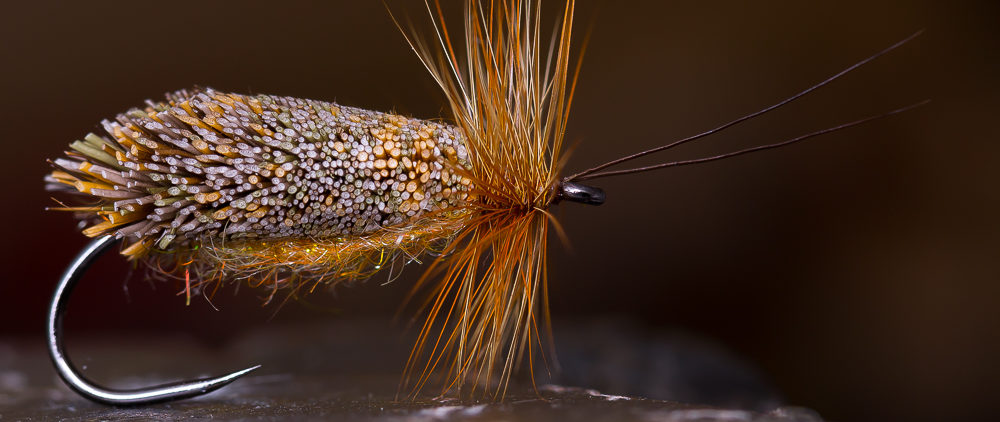When I first tied this pattern, I used epoxy for it. That’s why there’s „Poxy“ in the name of the fly. Today I use uv-resin for it, but I didn’t wanted to chance the name. ;-)
When you tie this pattern, it’s very important, that the resin soaks into the braid at the end of the fly to fix the marble fox, so it won’t tangle around the hook bend while casting. The materials used are:
- Gamakatsu F314 # 2
- Mono thread
- 3D Eyes
- Marble Fox olive
- Krinkle Mirror Flash
- Ice Dub golden olive
- Felix Cord olive
- Permanent Markers
- UV-Resin
You can also tie in some lead wire if you want, to create a jigging effect for example.
The Poxy-Fox looks really massive on the picture, but in the water it got some translucency. That’s the reason, why you should dub a thin body before slipping the flexi cord around the hook shank.
tight lines
Holger Lachmann














